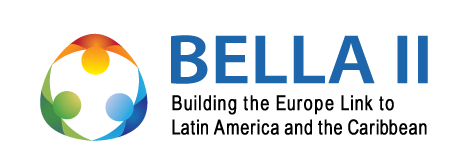The Government of Guatemala has confirmed its membership in the Latin America and Caribbean Cyber Competence Center (LAC4), with the presence of public officials from the Executive Branch and international experts from LAC4, following efforts by the Presidential Commission for Open and Electronic Government.
This decision has been made to support and enhance the operations of the Executive Branch's dependencies in cybersecurity in our country, such as the National Cybersecurity Committee, the Ministry of the Interior, and the Ministry of Defense, among others.
The membership is a component of the Digital Transformation Table's activities, which coincide with the development of the National Agenda for the Modernization of the Executive Branch. The new measure will allow citizens to benefit from improved efficiency and effectiveness in accordance with international standards governing cybersecurity.
During the event, Merili Soosalu, leader of the LAC4 program, stated: “The inclusion of Guatemala provides an important foothold in Central America, alongside the Dominican Republic, Honduras, Panama, and El Salvador. In addition to strengthening bilateral cybersecurity cooperation with Guatemala, our goal is to increasingly utilize the subregional format in LAC4 to facilitate the exchange of best practices between the EU and LAC and within the Caribbean.” For his part, Edie Cux, Coordinator and Executive Director of the Presidential Commission for Open and Electronic Government and a member of the Executive Branch Modernization Committee, noted: “Guatemala's inclusion in the LAC4 initiative is a strategic point for the country to position itself in the region alongside countries like the Dominican Republic or Costa Rica, which have made significant advances in recent years, prioritizing social inclusion and emphasizing the importance of involving all relevant sectors of our society in the development of cyber capabilities.”
Finally, the Ambassador of the European Union in Guatemala, Thomas Peyker, reiterated that “cybersecurity is one of the key topics in the political dialogue and bilateral cooperation between Guatemala and the EU, which we will continue to support with various efforts at the regional and bilateral levels. In this regard, I want to emphasize the need to continue working towards Guatemala's adherence to the Budapest Convention on Cybercrime.”
Established in 2022 in Santo Domingo, Dominican Republic, LAC4 is the flagship initiative of EU CyberNet and serves as a training and knowledge center for sharing expertise in cybersecurity and cybercrime. Additionally, it aims to facilitate practical collaboration between the LAC region and the EU, promote the benefits of an open, free, and inclusive cyberspace, and enhance cybersecurity capabilities within the LAC region. LAC4 has 10 members in addition to Guatemala, represented by their respective national authorities or organizations: Antigua and Barbuda, the Dominican Republic, El Salvador, Estonia, Honduras, the Netherlands, Panama, Uruguay, RedCLARA (panregional), and the Cyber 4.0 Competence Center (Italy).
As a key member of LAC4, RedCLARA has been fundamental in promoting collaboration throughout Latin America through its extensive network, fostering knowledge exchange, and facilitating efforts to develop cybersecurity capabilities. By joining LAC4, RedCLARA supports the development of cybersecurity initiatives in the region and contributes to connecting academic and governmental institutions across Latin America, ensuring a more robust and secure digital ecosystem.
Source: EU Delegation to Guatemala





